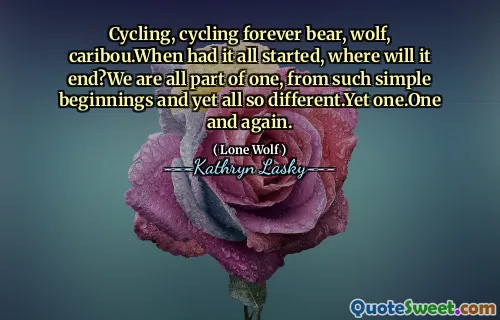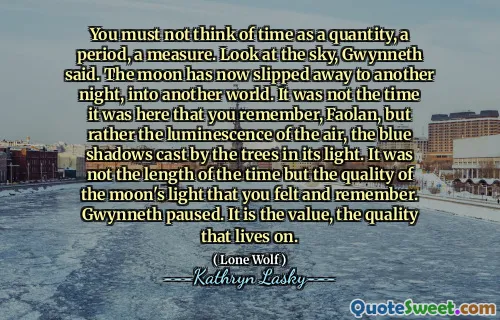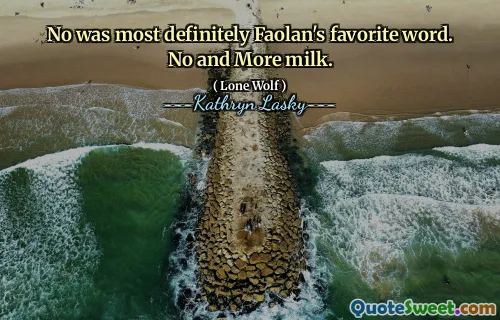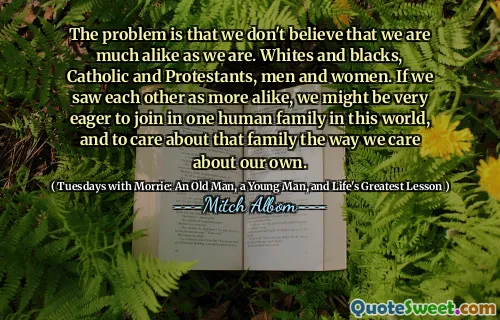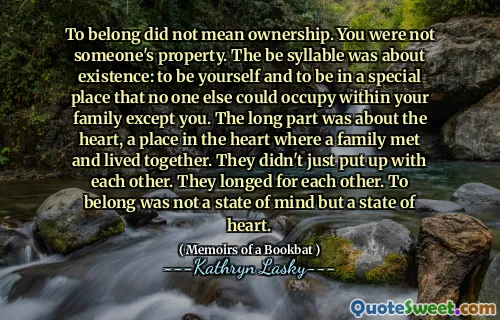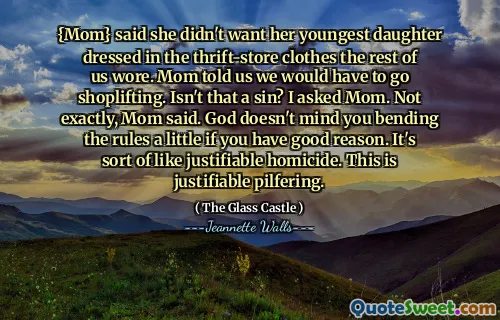The first time someone I loved left me behind...I didn't know how my family would balance. We had been such a sturdy little end table, four solid legs. I was sure we would now be off-kilter, always unstable. Until one day I looked more closely, and realized that we had simply become a stool.
In "Lone Wolf," Jodi Picoult explores the emotional turmoil that arises when a loved one departs. The narrator reflects on their family's previously strong foundation, likening it to a sturdy end table supported by four legs. The departure leads to fears of instability and a sense of imbalance in the family dynamics. However, as time passes, the narrator gains a new perspective. They recognize that, while they may have lost a leg of their support, they have adapted and transformed into a stool, which, though different, still serves a purpose. This metaphor illustrates resilience and the ability to adjust to change despite initial feelings of loss.
In "Lone Wolf," Jodi Picoult explores the emotional turmoil that arises when a loved one departs. The narrator reflects on their family's previously strong foundation, likening it to a sturdy end table supported by four legs. The departure leads to fears of instability and a sense of imbalance in the family dynamics.
However, as time passes, the narrator gains a new perspective. They recognize that, while they may have lost a leg of their support, they have adapted and transformed into a stool, which, though different, still serves a purpose. This metaphor illustrates resilience and the ability to adjust to change despite initial feelings of loss.
